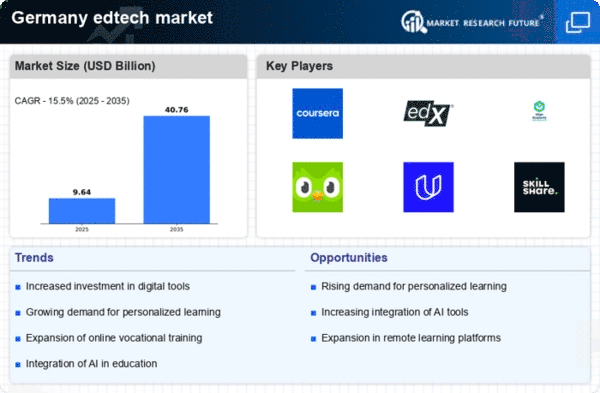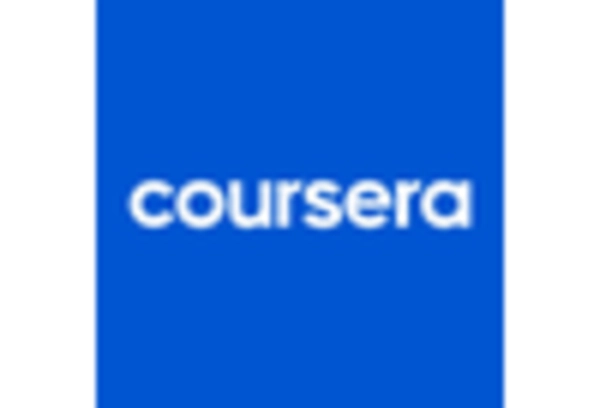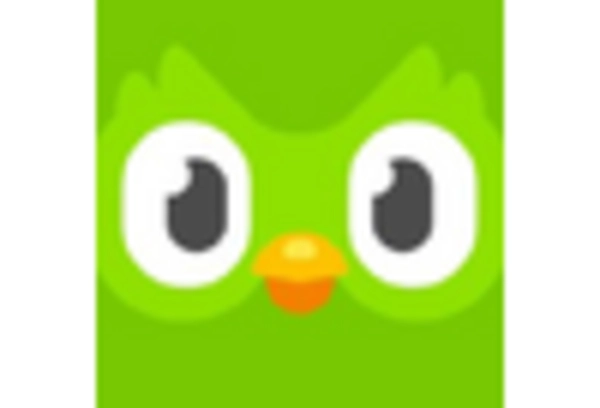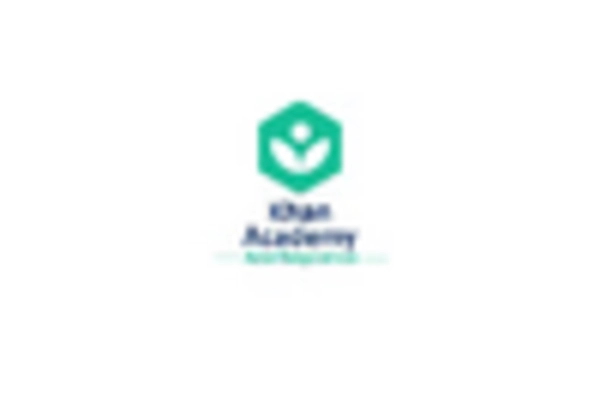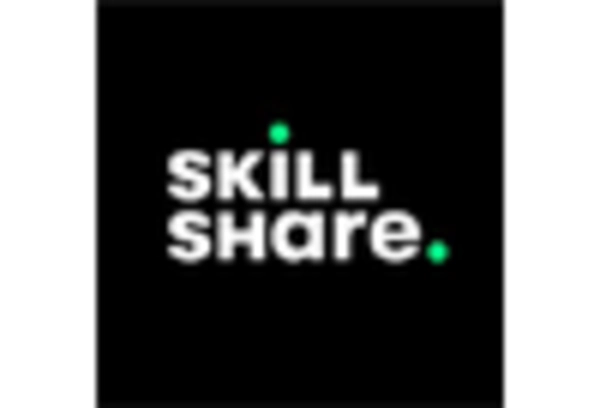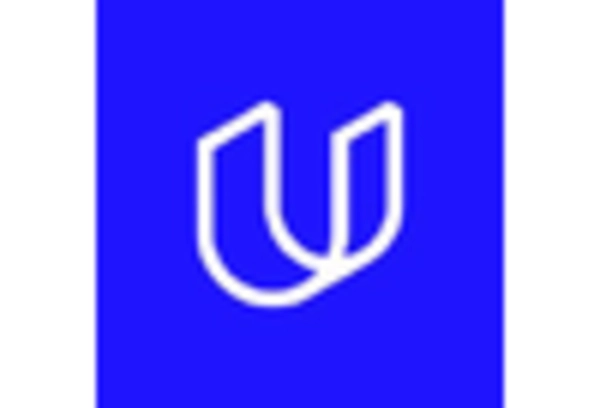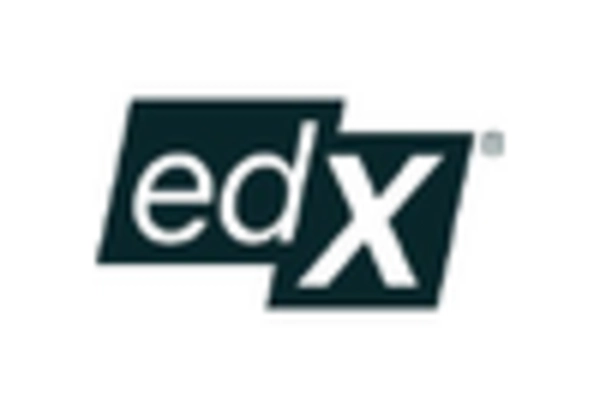Government Initiatives and Funding
Government initiatives play a crucial role in shaping the edtech market in Germany. Recent policies aimed at enhancing digital education infrastructure have led to increased funding for educational technology projects. The German government has allocated approximately €1 billion to support digitalization in schools, which includes investments in edtech solutions. This funding is expected to facilitate the adoption of innovative technologies in classrooms, thereby enhancing the overall learning experience. As educational institutions leverage these resources, the edtech market is likely to witness accelerated growth, driven by a supportive regulatory environment.
Increased Focus on Skill Development
There is a notable shift towards skill development within the edtech market in Germany. Employers are increasingly emphasizing the need for practical skills and competencies, leading educational institutions to adapt their curricula accordingly. This trend has resulted in a rise in demand for edtech solutions that offer vocational training and skill-building programs. For example, platforms that provide coding boot camps or digital marketing courses are gaining traction. The market for such skill-oriented edtech solutions is expected to expand, reflecting a broader recognition of the importance of equipping students with relevant skills for the workforce.
Growing Demand for Remote Learning Solutions
The demand for remote learning solutions is a significant driver of the edtech market in Germany. As educational institutions increasingly adopt hybrid learning models, the need for effective online platforms has become paramount. Reports indicate that approximately 60% of educational institutions in Germany are now utilizing some form of online learning. This shift is prompting edtech companies to develop robust platforms that can support interactive and engaging remote learning experiences. Consequently, the edtech market is poised for growth as more institutions seek to enhance their digital offerings to meet the evolving needs of students.
Technological Advancements in Learning Tools
The edtech market in Germany is experiencing a surge in technological advancements, particularly in learning tools. Innovations such as artificial intelligence and machine learning are being integrated into educational platforms, enhancing personalized learning experiences. For instance, adaptive learning technologies can tailor educational content to individual student needs, potentially improving engagement and retention rates. The market for these technologies is projected to grow significantly, with estimates suggesting a compound annual growth rate (CAGR) of around 15% over the next five years. This growth indicates a robust demand for sophisticated educational tools that cater to diverse learning styles, thereby driving the edtech market forward.
Rising Popularity of Gamification in Education
Gamification is emerging as a compelling driver within the edtech market in Germany. The incorporation of game-like elements into educational content is proving effective in enhancing student engagement and motivation. Research suggests that gamified learning experiences can lead to improved academic performance, with some studies indicating a potential increase in retention rates by up to 30%. As educators recognize the benefits of gamification, there is a growing demand for edtech solutions that integrate these elements into their offerings. This trend is likely to propel the edtech market forward, as more institutions seek to create dynamic and interactive learning environments.


